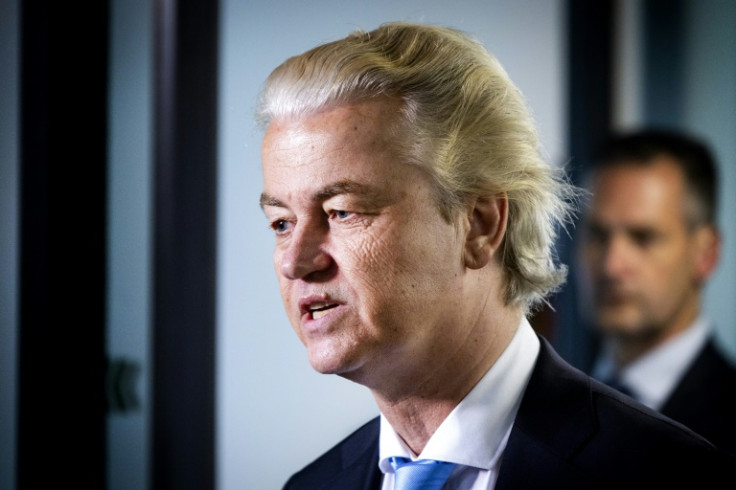
Six months after Geert Wilders swept to a stunning election win in the Netherlands, top politicians have until Wednesday to form a government -- without the far-right firebrand as prime minister.
Since the November 22 vote, Wilders and his far-right Freedom Party have been embroiled in fractious talks with three other parties to forge a coalition government to lead Europe's fifth largest economy.
Talks have broken down several times -- not helped by social media sniping from all sides -- but Wednesday is the latest deadline imposed by the two men overseeing the negotiations.
The parties are still wrestling over public finances but appeared confident as the deadline looms.
"We are making progress. There is plenty of chance" to come to a deal, said Pieter Omtzigt, leader of the centrist New Social Contract Party and a key player in the talks.
But a key question remains: who will be prime minister to replace Mark Rutte, who appears set to take over as NATO Secretary-General?
Wilders reluctantly ruled himself out in March, amid unease over the anti-Islam, anti-European politician representing the Netherlands.
"The love for my country and voters is bigger and more important than my own position," said Wilders at the time, adding that he would eventually fulfil his dream of becoming PM.
Having won the most seats in the election, the ball is in Wilders's court to propose a prime minister and he has said he has someone in mind but no clear name has leaked out.
"It's the best-kept secret in the Hague," said public broadcaster NOS.
Names circulating include Kim Putters, who managed to get talks back on track as "scout" or supervisor of the negotiations, apparently winning the top politicians' trust.
Mona Keijzer, a leading figure in the BBB farmers' party, is seen as another possible choice.
The parties are seen as likely to clinch a coalition deal before the Wednesday deadline -- possibly as early as late Tuesday -- but the PM decision may come later.
In March, the four parties agreed to aim for a partially technocratic government made up of 50 percent politicians and 50 percent from outside politics.
The last time the Netherlands had an "expert" government was in 1918 but the concept of a technocratic government is familiar to some other European countries, especially Italy.
Since the 1990s it has become common to call in unelected outsiders at times of crisis in Italian politics, notably in 2021 when European Central Bank Mario Draghi became PM.
It is not immediately clear how the system would work in the Netherlands.
The far right is increasingly performing well in elections across Europe but has struggled to translate votes into power as other parties refuse to work with them.
However, they are seen making strong gains in upcoming elections to the European Parliament from June 6-9.
Wilders, whose PVV could top the European vote in the Netherlands according to polls, surprised some by dropping his demand the Dutch hold a referendum on leaving the EU -- a "Nexit".
The party's European manifesto is still fiercely eurosceptic, stressing: "No European superstate for us... we will work hard to change the Union from within."







